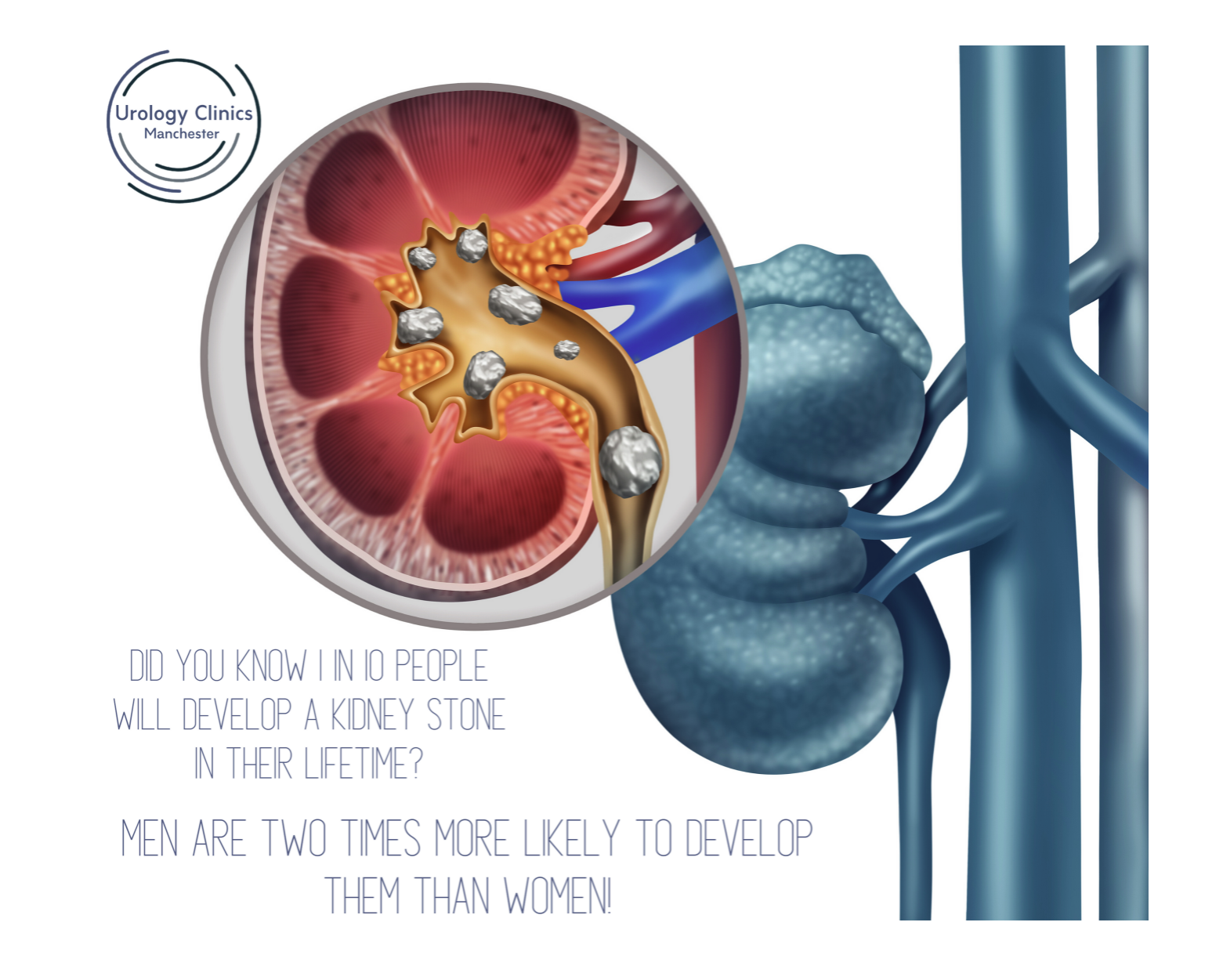Some people pass kidney stones and only find out when an x-ray or a urine specimen reveals them – so they would never have known they had one! However, when a stone moves down from your kidney into your ureter (the tube carrying urine from the kidney to the bladder), you may get severe pain without any warning – ureteric colic. This can be very unpleasant, the classic presentation of a ureteric colic is immediate, colicky flank pain radiating to the groin, sometimes with nausea and vomiting. The pain is often described as the worst pain the patient has ever had experienced.
When the stone gets close to your bladder, you may get a constant need to pass urine although there is nothing to pass; this is due to the stone irritating the base of your bladder and “fooling” it into thinking that it is full. A stone in this position can also cause burning when you pass urine, pain at the tip of your penis or urethra (waterpipe) and visible blood in your urine. Some individuals may also have microhaematuria (microscopic blood in urine) or gross haematuria (blood that you can see).
Although kidney stones are most common from the ages of 20 through to 50, they can occur at any age. Here are some of the symptoms to look out for:
- Pain in the abdomen or groin
- High temperature
- Feeling sweaty
- Pain that comes in waves
- Nausea or vomiting
- Blood in your urine
- Urine infection
Here are some tips to reduce your risk of developing kidneys stones:
- Aim to drink 3 litres of fluid each day
- Add lemon juice to your water
- Avoid salt and salty foods
- Avoid fizzy drinks
What are kidney stones?
A kidney stone is a hard crystal formed in the kidneys, typically consisting of insoluble calcium compounds.
What are the different types of kidney stone?
There are four main types of kidney stone:
- Calcium stones: formed due to too much calcium in the urine
- Struvite stones: often occur following an extended UTI
- Uric acid stones: formed due to too much uric acid in the urine
- Cystine stones: these are the rarest type and are associated with a condition called cystinuria
If you are worried please do get in touch with our team at the Urology Clinics Manchester Kidney Stone Clinic.
This article is intended to inform and give insight but not treat, diagnose or replace the advice of a doctor. Always seek medical advice with any questions regarding a medical condition.






0 Comments